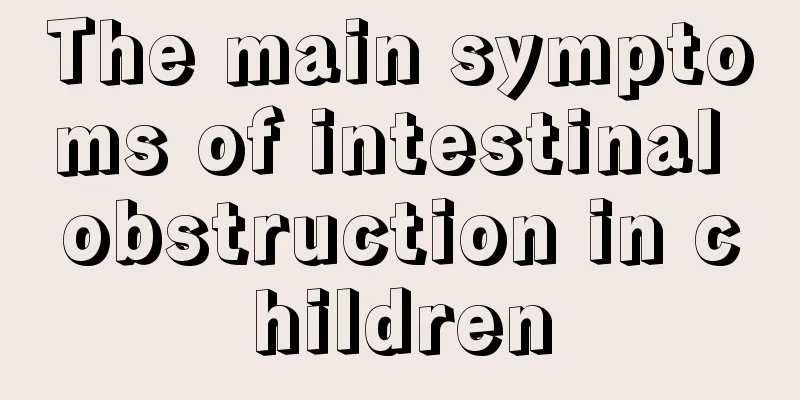The main symptoms of intestinal obstruction in children

|
Intestinal obstruction is a common disease in children. It has many causes, the main manifestations of which are fever, vomiting, abdominal pain, and constipation. Fever is not the main manifestation of intestinal infarction in children, but it can be seen in many intestinal infarction diseases. So, how do children with intestinal infarction develop symptoms such as fever? What should you pay attention to when you have a fever? What are the main symptoms of intestinal infarction in children? Let’s take a look at it together below! For more effective prevention. Intestinal obstruction with fever is generally seen in patients with intestinal paralysis caused by severe pneumonia, intestinal infection, peritonitis and sepsis. The intestinal obstruction caused by this is more common in infants. In other words, when children, especially infants, are seriously ill, if they show typical symptoms of intestinal obstruction in addition to fever and symptoms of the primary disease, people should be highly vigilant to avoid delaying the disease. For this type of patients with intestinal obstruction accompanied by fever due to severe infection, the clinical focus is on treating the primary disease, that is, using non-surgical treatments, such as anti-inflammatory, antipyretic, etc. At the same time, fasting, gastrointestinal decompression, acupuncture of Zusanli and Hegu points, etc. should be administered. If it is confirmed that there is no mechanical intestinal obstruction, neostigmine can be given to promote intestinal peristalsis. Although the symptoms of intestinal obstruction vary depending on the cause, location, nature, and degree of the obstruction, there are four common symptoms: abdominal pain, abdominal distension, vomiting, and constipation. Experts believe that if a child has diarrhea, it is generally not intestinal obstruction, but if bloody stools occur, it is hard to say. In the early stages of obstruction, feces and gas retained in the intestine distal to the obstruction can still be discharged. In addition, intussusception, mesenteric thrombosis, etc. may also cause bloody stools to be discharged. Parents are reminded that if they find their children showing the above typical symptoms of intestinal obstruction, they should be highly vigilant to avoid delaying the treatment. The above is the expert’s summary of the main symptoms of intestinal obstruction in young children. It is hoped that patients with this phenomenon can go to the hospital as soon as possible to find out the cause and type of the disease and seek medical attention early. Do not think that this is just a minor illness and ignore it. In many cases, this idea is often wrong. |
<<: What should young children pay attention to when swimming?
>>: What should I do if my child has premature ventricular beats?
Recommend
What causes redness and pain on a girl's vulva?
The girls' genitals are very private and sens...
What should I do if my child has a fever of 41 degrees?
Since children have relatively poor disease resis...
How to treat children's cough and pneumonia
Coughing is a common disease in children. Sometim...
What should I do if my child always bites his lower lip?
The health of their children is the greatest wish...
Why do white spots appear on baby’s face?
As we all know, vitiligo is a very scary disease....
Reasons for red anus in babies
If the baby is not properly cared for, various sy...
One Minute Sex Education
Nowadays, the problem of sexual assault on childr...
How to choose a baby pillow
The baby's body is constantly changing. If th...
How do children have eye bags?
Having eye bags is a common phenomenon in life, b...
How tall should a baby be at 18 months old?
If some parents' height is not ideal, they wi...
Why do children sweat easily when sleeping?
Many children sweat excessively when they sleep. ...
Why does my two-year-old baby grind his teeth when sleeping at night?
In life, the baby's physical health and healt...
How to tell if a baby has dull eyes
We all know that the healthy growth of babies con...
What should children eat if their lips are white?
Pale lips are a common condition among many child...
Ten month old baby does not sleep during the day
We all know that baby sleep is very important and...









